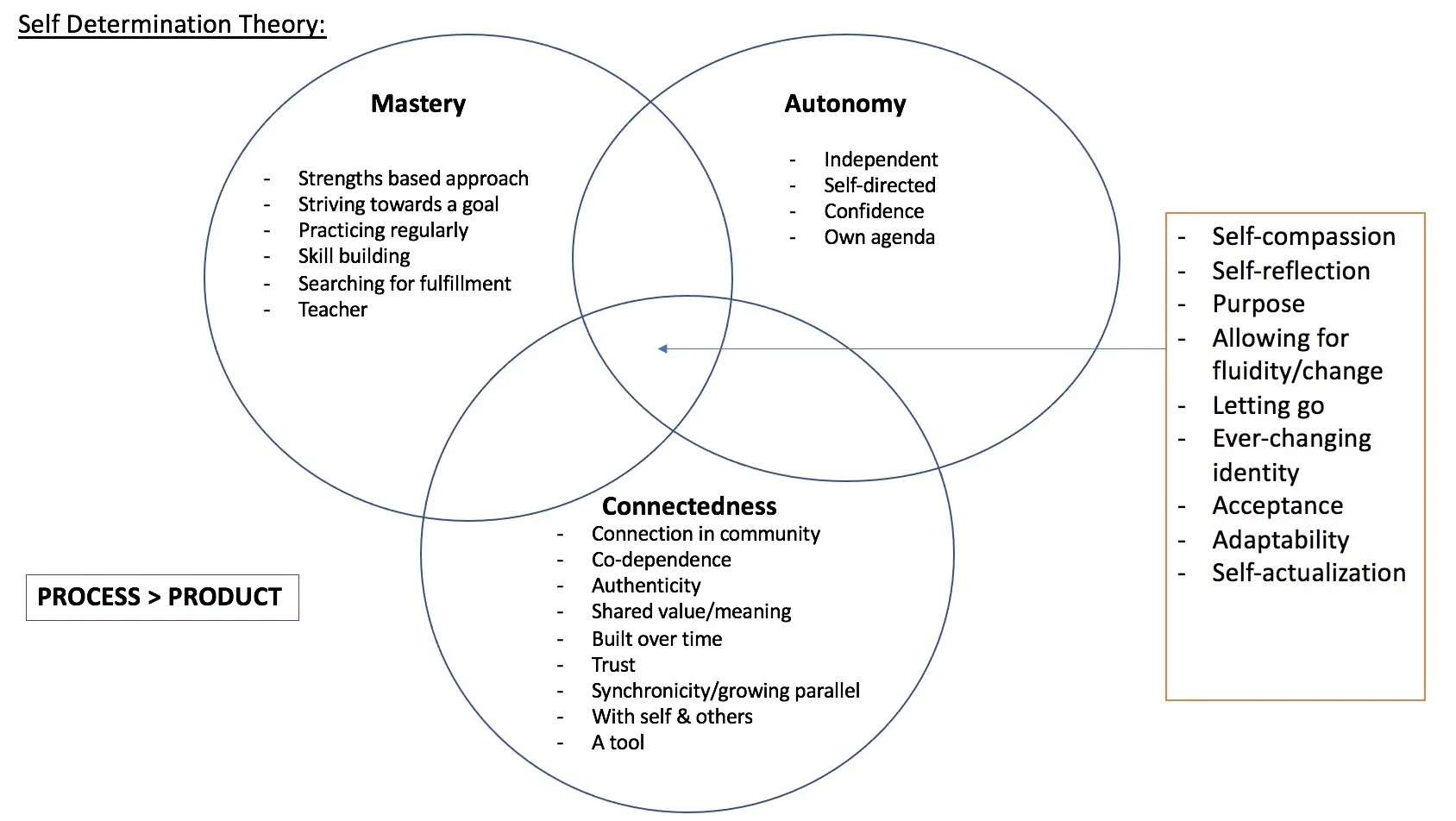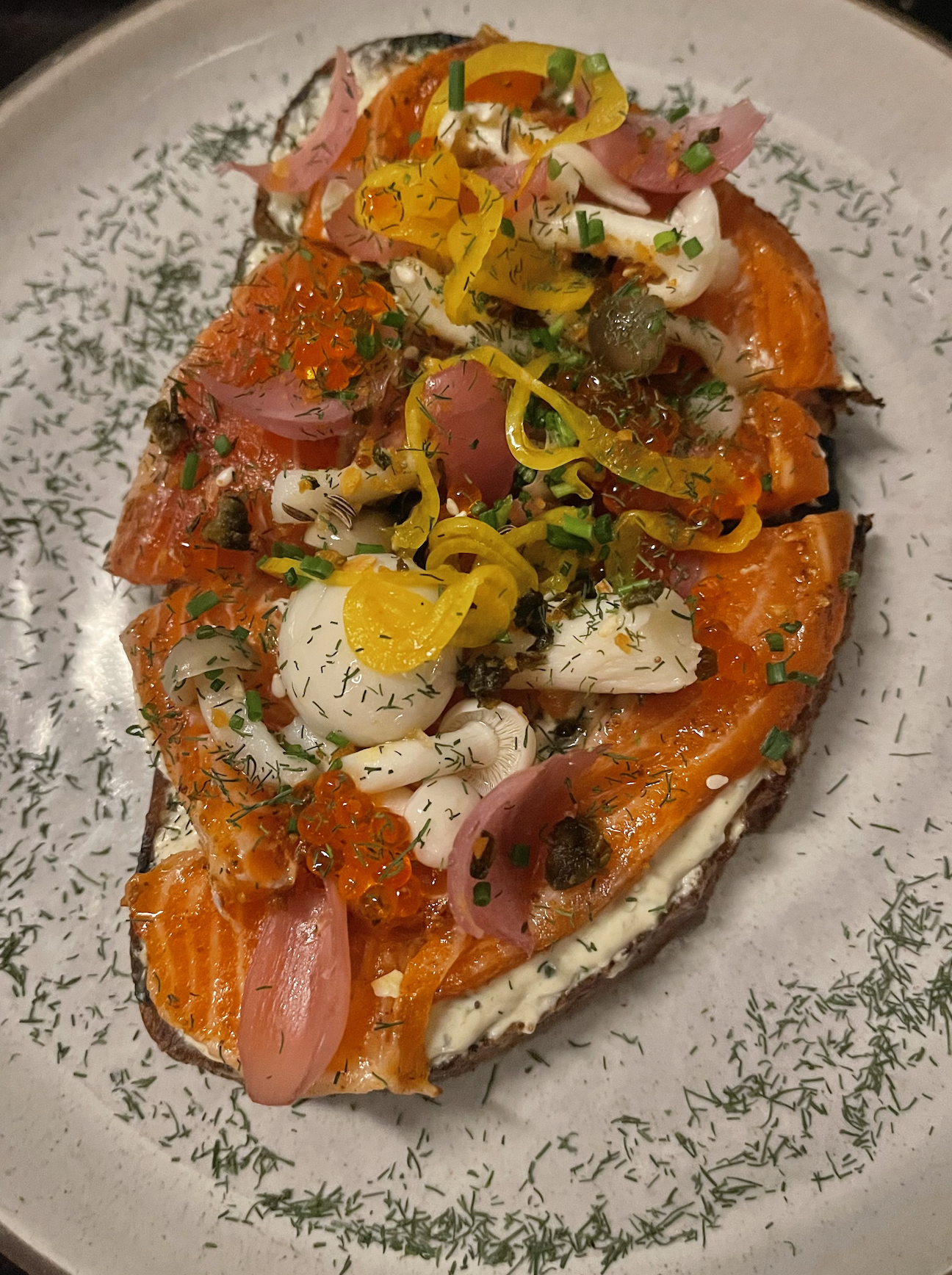March Newsletter
Tatte, Beacon Hill. Film by Marina
Last month, I took an introductory camera class to learn more about the film camera my boyfriend’s father lent me. It’s been so lovely to slow down and be intentional with each shot. The photo above was from a photo walk I took where I wrote notes about the aperture, focus, magnification, and shutter speed. Normally, I am one to snap a photo of just about anything. Taking the time to curate a shot by using my mind in a new way has been interesting. Many creative outlets allow us the rewarding opportunity to be deliberate and thoughtful.
This reminds me of the Self-Determination Theory in therapy. This theory says that to be fulfilled and self-actualized, we need to have some semblance of balance across three domains: mastery, autonomy, and connection. Think of it as a three-part ven-diagram (see below for example from group therapy I previously led).
Autonomy is a level of comfort or willingness for time spent with ourselves. Connection can be felt one-on-one with a friend or felt in community. Mastery does not have to mean you have to be an expert, but rather continue working towards a new skill.
Practicing film photography helps my overall self-efficacy. I am showing myself I am capable of being a beginner and learning new things.
When was the last time you learned something new or tried a new skill?
Smoked Trout Toast from Season to Taste, Cambridge, MA
I recently enjoyed a delicious smoked trout toast with a friend at the cozy Cambridge restaurant, Season to Taste. Raw fish, tobiko, and mushrooms were always on a list of foods I just couldn’t bear. It’s been exciting to notice how my palate has changed over the years and to think of all of the great foods I have integrated into my daily meals. This experience helps me relate to my clients who are doing ARFID* exposures. Their therapeutic work is exposing themselves to foods they are fearful of to increase their food variety and thus improving their overall nutrition and health.
*For those unfamiliar with ARFID, it stands for Avoidant/Restrictive Food Intake Disorder. A disorder that can present as a lack of appetite for unexplained reasons, extreme pickiness, or a fear of adverse consequences (choking or vomiting).
I recently posted these graphics on Instagram for National Eating Disorder Awareness week. There is so much I could say, it is hard to know where to begin. The greatest barrier to recovery is weight stigma.
To put it simply, someone’s weight gain or loss is not our business. When we compliment weight loss we could be complimenting a complicated relationship with their food, we could be complimenting their choice to use a weight loss medication that has an inevitable chance of regain, or we could be complimenting depression making it hard to eat. Every comment is impactful internalized, it seeps into our brains and shapes the way we perceive ourselves. It reinforces our own internalized fat phobia.
What do we do when we notice then? Just notice. Notice your bias. Ask yourself: how do I feel about my body in this moment and how might I be projecting my feelings onto this person? If you are faced with judgmental thoughts, remember to practice compassion as you would with a friend, and be kind to yourself. You, too, are unlearning the societal stigmas. We are only human.
A book I love related to this topic is The Body is not an Apology by Sonya Renee Taylor. My favorite quote that I will leave you all with today is,
“We did not start life in a negative partnership with our bodies. I have never seen a toddler lament the size of their thighs, the squishiness of their belly. Children do not arrive here ashamed of their race, gender, age, or differing abilities. Babies love their bodies! Each discovery they encounter is freaking awesome. Have you ever seen an infant realize they have feet? Talk about wonder! That is what an unobstructed relationship with our bodies looks like” (pg.7)
See you next month.
with love, Marina





